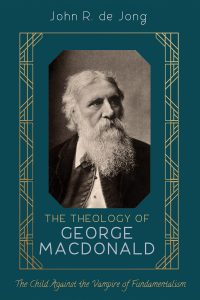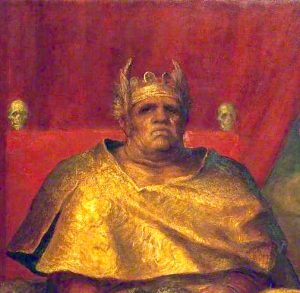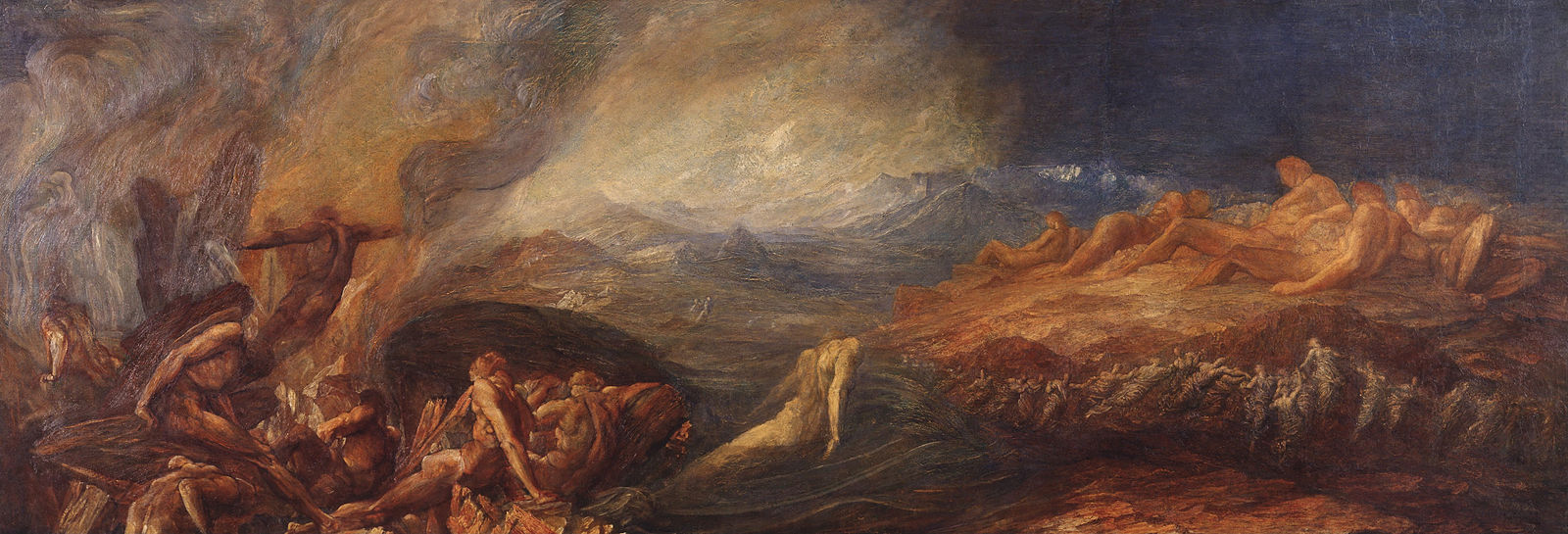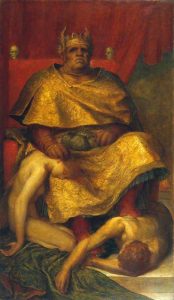I recently had my third COVID vaccination. Having had two shots of the AstraZeneca vaccine earlier this year, I now received the Moderna version as a booster. I am grateful to the scientists and health staff—virologists, geneticists, epidemiologists, nurses, and so forth—that have made this possible in such a short time, many working ridiculously long hours to achieve what some said was impossible, many of whom are Christian believers as well as people from other faiths, highly motivated to use their gifts to help their fellow humans . . . and many based here in my home town of Cambridge. Continue reading “Salt of the earth? A Christian perspective on vaccination”
The Good News—some follow-up thoughts
In response to my last blog—Is the Gospel Good News?—I was asked a very fundamental question:
What are the consequences of our deliberate evil deeds? Can we do whatever we like and will God forgive us anyway?
I decided to post my response here hoping that it may help others.
To be honest, a book is needed to answer this question! I probably won’t write one, though, because others have done a much better job than I could ever do—especially David Bentley Hart whose book (That All Shall Be Saved) I came across after writing my last blog. I write quickly, so my thoughts are not as organised as I’d like them to be! Continue reading “The Good News—some follow-up thoughts”
Rapture theology and the end times
Image: George Frederick Watts, Chaos (c. 1875).
With global anxiety increasing as we face threats in so many areas, how should we—as people of faith—respond?
It is clear that humanity is facing a number of existential crises: sea-levels rising, more frequent “weather events,” insect numbers decimated, oxygen levels in the sea declining, species extinction, plastic pollution, toxic air . . . and the list could go on. When we add to this political posturing, social inequality, the rise of nationalism, and nuclear arms proliferation we end up with the perfect storm. Many are anxious. Is this the end of the world? So prevalent is anxiety in the current climate that one paper recently presented us with the “A-Z of climate anxiety: how to avoid meltdown,” subtitled: “With the climate emergency putting our mental health at risk, Emma Beddington presents an everyday guide to eco wellbeing.” This may, perhaps, result in some personal comfort but offers little hope for the planet. Continue reading “Rapture theology and the end times”
New book on George MacDonald

I am please to announce that my new book—The Theology of George MacDonald: The Child Against the Vampire of Fundamentalism—is now available. You can preview it here at Pickwick Publications or click here for the Amazon listing. If you are interested in the story of how it came to be written, read on.
Mammon—dedicated to his worshippers

Some people have been asking me about the picture in my last post. It is worth a closer look. Its message is, sadly, timeless, but particularly relevant to our troubled age. In the 1880s, the artist, G. F. Watts (1817–1904), was a senior figure in the London art world and known as ‘England’s Michelangelo’. He was an intellectual whose work pioneered symbolism; a deep thinker who painted ideas. Oscar Wilde called him ‘a great originative and imaginative genius’.1 Barak Obama was particularly drawn to Watt’s Hope which, I read somewhere, hung in the White House, and Watts was an inspiration to Martin Luther King. (This Guardian article is a good introduction to Watts.)
The full title of this work is Mammon—dedicated to his worshippers and the heavy, gilded, obscene demonic deity dominating this image is ‘massive’, that is, weighed down by gold whose gravitational pull binds him to the earth. His gouty leg (more visible in the artist’s line drawing of the subject) and unfeeling, swollen arm bear down on lifeless figures—fragile humanity, the imago Dei crushed by the weight of unfeeling avarice. Continue reading “Mammon—dedicated to his worshippers”
Faith in the White House
Many years ago (I think it was 1983) I was invited to attend a conference in Blackpool, U.K. featuring as its guest speakers two Kenneths—Hagin and Copeland. I was young and naive and had no idea who these people were. I soon discovered. It hit me when I was driving home from the event in my beaten up old car (purchased for £120) when Mr Copeland barrelled past me in a fast-driven Rolls-Royce.
Fast forward to 2018, and I discover that Kenneth Copeland is one of those praying for, and supporting, a certain President. Should we be surprised? Continue reading “Faith in the White House”
Draining the swamp of American Evangelicalism
I don’t know about you, but I’ve been troubled of late. It’s all down to the storm on the western horizon and what seems (from this distance) to be an alliance between Christians and radical evil. Someone sent me a link to a video showing a posse of what were described as ‘Evangelical faith leaders’ praying for a certain President in the White House and, to be honest, I found it profoundly disturbing. I wondered (not without a pang of guilt) how many times one could sell one’s soul to the devil before it became the latter’s property. Continue reading “Draining the swamp of American Evangelicalism”
Art for art’s sake
I remember as a fifteen year old, on a trip to relatives in Holland, coming across the music of Tom Paxton. I felt like I had stumbled into heaven. Soon the likes of Tom’s successors – Bert Jansch, John Renbourne, Paul Simon and James Taylor – were giving me guitar lessons. Not that they knew it, of course: I simply played their LP’s on my merciless record player until they were irretrievably scratchy – but at least I could play some of the most difficult passages. My education was supplemented by weekly trips to the White Horse in Reading where I joined bearded guitar-wielding hippies and other fresh-faced lads like myself nursing under-age pints (which we made last the whole evening) as we worshipped the guitar. I could soon finger-pick with the best of them and blew all my savings on a wonderful instrument which cost me seven pounds and bore the label ‘Hi Spot, Foreign’. This was, of course, a marked contrast to Sundays where hymns and dreadful ‘choruses’ made me cringe with embarrassment. (Whoever penned the immortal lines ‘We’re in the great race to put rockets in space, but the needs of our souls we’re refusing to face’ should, in my humble opinion, be made to eat their own toenails. Some of the ‘choruses’ I’ve heard recently are little better.) There was no way I could take my White Horse friends to church. And so my life developed in two parallel universes whose paths never intersected.
God’s truth police – a consequence of fundamentalism
Rob Bell’s book Love Wins has provoked a predictable (and somewhat tiresome) debate among Christians, with accusations of universalism, heresy, and the erosion of truth taking centre stage. (The idea that God might be nice seems to be a shock for many.) As I read the vitriolic comments it appears to me that a central issue remains unaddressed, and it concerns the heart of Christianity — truth. Continue reading “God’s truth police – a consequence of fundamentalism”
Magic mushrooms – a culinary brush with death
Yelly (my Dutch wife) has just completed a two-day mushroom-hunting and identification course as a result of which I found myself (with some hesitation) eating various dubious-looking funghi. ‘It’s quite OK,’ she told me, with what sounded like confidence (after all, she had done a two-day course). ‘Only about twelve species of English mushrooms can kill you.’ One of these, apparently, you can munch on quite happily saying things like: ‘Mmmm — what a lovely delicate flavour!’ and such, and then two days later you die abruptly of kidney failure. Continue reading “Magic mushrooms – a culinary brush with death”


